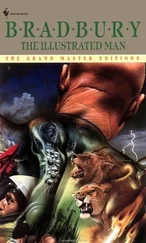Malcolm Bradbury - The History Man
Здесь есть возможность читать онлайн «Malcolm Bradbury - The History Man» весь текст электронной книги совершенно бесплатно (целиком полную версию без сокращений). В некоторых случаях можно слушать аудио, скачать через торрент в формате fb2 и присутствует краткое содержание. Жанр: Современная проза, на английском языке. Описание произведения, (предисловие) а так же отзывы посетителей доступны на портале библиотеки ЛибКат.
- Название:The History Man
- Автор:
- Жанр:
- Год:неизвестен
- ISBN:нет данных
- Рейтинг книги:3 / 5. Голосов: 1
-
Избранное:Добавить в избранное
- Отзывы:
-
Ваша оценка:
- 60
- 1
- 2
- 3
- 4
- 5
The History Man: краткое содержание, описание и аннотация
Предлагаем к чтению аннотацию, описание, краткое содержание или предисловие (зависит от того, что написал сам автор книги «The History Man»). Если вы не нашли необходимую информацию о книге — напишите в комментариях, мы постараемся отыскать её.
The History Man — читать онлайн бесплатно полную книгу (весь текст) целиком
Ниже представлен текст книги, разбитый по страницам. Система сохранения места последней прочитанной страницы, позволяет с удобством читать онлайн бесплатно книгу «The History Man», без необходимости каждый раз заново искать на чём Вы остановились. Поставьте закладку, и сможете в любой момент перейти на страницу, на которой закончили чтение.
Интервал:
Закладка:
'How long is the paper?' asks Merion Scoule. 'No discussion, just vote,' says Howard. 'In favour?' Three hands go up. 'Against?' Two go up, one of them Howard's. 'Well,' says Howard, 'you've got the consent of these tolerant people. Go ahead and read your formal paper.' Carmody casts a fast, uneasy glance at Howard, as if mystified by his good luck. Then he coughs, ducks his head down, and begins to read again, in the same careful voice. It is dull, dogged stuff, an old scheme of words, a weak little plot, a culling of obvious quotations surrounded by obvious comments, untouched with sympathy or that note of radical fire that, in Howard's eyes, has so much to do with true intellectual awareness. Occasionally Carmody picks up the books from beside his chair, and reads from them; occasionally he tries a rhetorical flourish; occasionally he glances, uneasily, up and around. The clock, on the wall above the greenboard, ticks and turns; the circle of people is bored; Michael Bernard, that irritable Marxist, draws large black crosses on a notepad, and Merion Scoule is blank-eyed, withdrawn into thoughts that take her elsewhere. Felicity is looking expectantly at Howard, awaiting his anger, his interruption. But Howard does not interrupt. The paper is like an overripe plum, collapsing and softening from its own inner entropy, ready to fall. It is the epitome of false consciousness; its ideas are fictions or pretences, self-serving, without active awareness; it moves towards its inevitable fate. Now the class follows Carmody's eyes as he tracks through his writing, moves towards the bottom of a page. He knows this; he fumbles the turnover, lifting two pages instead of one. He sees this, pauses, turns back one sheet. Merion Scoule says, 'Can I ask a question?'
Carmody looks up, his neat cropped head staring at her. He says, in a precise, judicious manner: 'If it's a point of detail. I'd prefer general issues to wait to the end, when the argument is clear.'
'It is a general issue,' says Merion. Howard says, impersonally: 'I think a little discussion would clear the air.'
'Well,' says Merion, leaning forward, 'I just want George to explain the methodology of this paper. So that I can understand it.' Carmody says, 'Isn't it evident? It's an objective summary of my findings.'
'But it doesn't have any ideology, does it?' asks Merion. 'It's filled with it,' says Michael Bernard, 'The ideology of bourgeois self-justification.'
'I meant ideological self-awareness,' says Merion. 'Oh, I realize it doesn't agree with your politics,' says Carmody, 'but I think someone ought to stand back and look critically at these critics of society for a change.'
'It doesn't even agree with life,' says Michael Bennard. 'You're seeing a society as a consensus which bad people from outside set out to upset, by wanting change. But people desire and need change; it's their only hope, not some paranoid little deviance.'
'That's pure politics,' says Carmody, 'may I get on with my paper?'
'It won't do, George,' says Howard, intervening, 'I'm afraid this is an anal, repressed paper in every way. Your model of society is static, as Michael says. It's an entity with no internal momentum and no internal conflict. In short, it's not sociologically valid.' A redness comes up Carmody's neck, and reaches his lower face. He says, insistently, 'I think it's a possible point of view, sir.'
'It may be in conservative circles,' says Howard, 'it isn't in sociological ones.' Carmody stares at Howard; some of the polite finish begins to come off him. 'Isn't that debatable, Dr Kirk?' he asks, 'I mean, are you sociology?'
'Yes,' says Howard, 'for the present purpose, I am.' There is discomfort in the room; Merion Scoule, humanely trying to soften the atmosphere, says, 'I think you're just a little hung up, George. I mean, you're too much involved; you're not standing outside society and looking at it.' Carmody ignores her; he looks at Howard; he says, 'Nothing I say could ever please you, could it?'
'You'd certainly have to try harder than you do,' says Howard. 'I see,' says Carmody, 'Do I have to agree with you, Dr Kirk, do I have to vote the way you do, and march down the street with you, and sign your petitions, and hit policemen on your demos, before I can pass your course?'
There is a pause in the class, a tiny, uneasy movement of furniture. Then Howard says: 'It's not required, George. But it might help you see some of the problems inside this society you keep sentimentalizing about.'
'I think, George,' says Merion, 'the trouble is that you don't have a conflict model of society.'
'Don't let him off the hook,' says Howard, punitive. 'There's a lot more missing than that. All of sociology and all of humanity as well.' Carmody's entire face is red now; his eyes glare. He pushes his paper savagely back into his shiny briefcase, and says, 'Of course you all do have a conflict model. Everyone's interest conflicts with everyone else's. But better not conflict with Dr Kirk. Oh, no, it's not a consensus model for his classes all right. I mean, we're democratic, and we vote, but no dirty old conservative standpoints here. Sociology's revolutionary, and we'd better agree.'
'I'm going to have to cool this down,' says Howard, 'I don't think you're in a state to understand anything that's being said to you. We'll forget the paper, and start in on this Mill, Marx, Weber topic from the beginning.'
'Do what you like,' says Carmody, 'I've had enough.' He gets off his chair and kneels on the floor, picking up his pile of books. His hurt, angry face looks up at Howard as he does this. Then he stands, captures his briefcase with his fingers, and walks out of the circle, towards the door. The door is difficult to open, with his burden of books, but he manages it; he hooks a foot round it to bring it slamming to as he leaves. The circle of people stare after him; but to these 'habitués of the seminar as an event, this is a fairly modest outrage, a simple pettish hysteria, not at all as fancy as many of the intense psychodramas that develop in class. The door bangs, and they turn inward again, and resume their eye-to-eye ecological huddle. Howard leads them through a discussion of the issues that, in Carmody's gloss of nineteenth-century thought and society, had not existed: the compelling machine of industrialism, the fetish of commodity, the protestant ethic, the repression of the worker, the revolutionary energies. Carmody wanders somewhere else, forgotten; the class generates its rightful work and then its excitement, for Howard is a busy, compelling teacher, a man of passion. The faces wake, the hour turns in no time at all.
And then the stable clock chimes; the class gets up, and carries the tables back from the corridor into the room again. It is Howard's custom to take his class for coffee afterwards, and now he leads them, a little group, down in the lift, across the foyer, through the Piazza. They go into the coffee bar in the Students' Union, overlooking the lake. The noise level is high; in a corner a pin-table pings on different notes, in serial composition; people sit at table arguing, or reading. They find a booth by the wall, littered with cups and cigarette packets, and sit down, squeezing into the circular bench; Merion and Michael go off to join the queue at the counter to bring back coffee. 'Wow,' says Felicity, pushing in next to Howard, and resting her knee against his leg, and looking up into his face, 'I hope you never decide to destroy me like that.'
'Like what?' asks Howard. 'The way you did George,' says Felicity, 'If he wasn't such a reactionary, I'd feel sorry for him.'
'It mystifies me,' says Howard. 'It's as if he invites it, as if he's set himself up as masochist to my sadist.'
'But you don't give him a chance,' says Felicity. 'No chances for people like that,' says Hashmi, 'he's an imperialist fascist.'
Читать дальшеИнтервал:
Закладка:
Похожие книги на «The History Man»
Представляем Вашему вниманию похожие книги на «The History Man» списком для выбора. Мы отобрали схожую по названию и смыслу литературу в надежде предоставить читателям больше вариантов отыскать новые, интересные, ещё непрочитанные произведения.
Обсуждение, отзывы о книге «The History Man» и просто собственные мнения читателей. Оставьте ваши комментарии, напишите, что Вы думаете о произведении, его смысле или главных героях. Укажите что конкретно понравилось, а что нет, и почему Вы так считаете.











